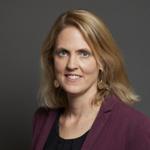Hinduism: Aylesbury
(asked on 14th October 2024) - View SourceQuestion to the Department for Education:
To ask the Secretary of State for Education, what steps she is taking to ensure that (a) teachers are given training in and (b) schools have high-quality resources to support teaching on Hinduism in (i) primary and (ii) secondary schools in Aylesbury constituency.
Religious education (RE) is an important subject that should provide pupils with an opportunity to learn about a wide range of religious and non-religious beliefs. RE should help pupils to better understand the values and traditions of different religious communities, which is why it remains a compulsory subject in all state-funded schools in England for each pupil up to the age of 18. To support high-quality teaching, the department offers a £10,000 bursary for those undertaking RE postgraduate initial teacher training in the 2024/25 academic year.
The government does not specify of what a local RE curriculum should consist. These considerations, in relation to mainstream state funded schools, are a matter for individual schools or for Agreed Syllabus Conferences (ASCs), which review and recommend a locally agreed syllabus to their local authority for approval.
Academies and most maintained schools with a religious designation are permitted to develop their own RE syllabus. In the case of schools with a religious designation these may be in accordance with their trust deeds or tenets of their faith. For other schools, and in locally agreed syllabuses, schools must reflect: “the fact that the religious traditions in Great Britain are in the main Christian, whilst taking account of the teaching and practices of the other principal religions represented in Great Britain”.
Legislation requires each locally agreed syllabus for religious education to be reviewed at least once every five years by an ASC established by the local authority. Membership of the ASC must be drawn from Christian denominations and such other religions and religious denominations as, in the opinion of the local authority, will appropriately reflect the principal religious traditions in the area. Membership must also be drawn from the Church of England, teacher associations and the local authority. This ensures that all relevant faith groups can be consulted.

